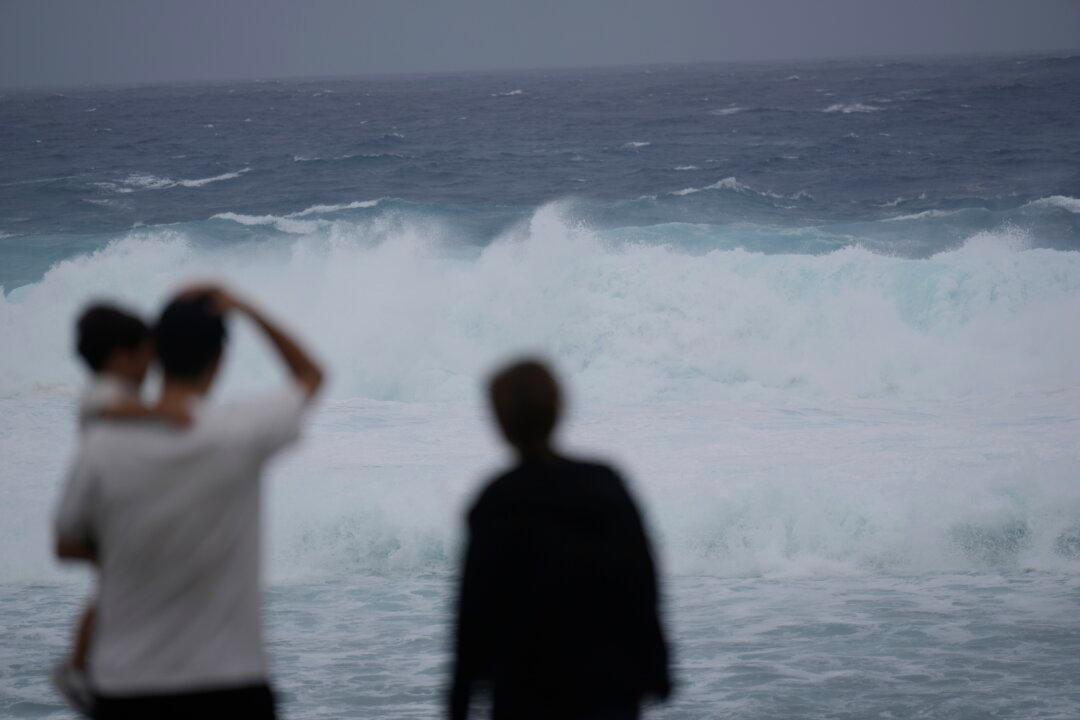NAHA, Japan—Typhoon Mawar appeared to be losing force as it headed Wednesday toward Japan’s Okinawa Islands, where the United States maintains a significant military presence, after largely skirting Taiwan and the Philippines.
After tearing across Guam last week, Mawar passed by Taiwan on Tuesday with sustained winds of 155 kph (96 mph) and gusts of up to 190 kph (118 mph), sending high waves crashing on the island’s east coast.





